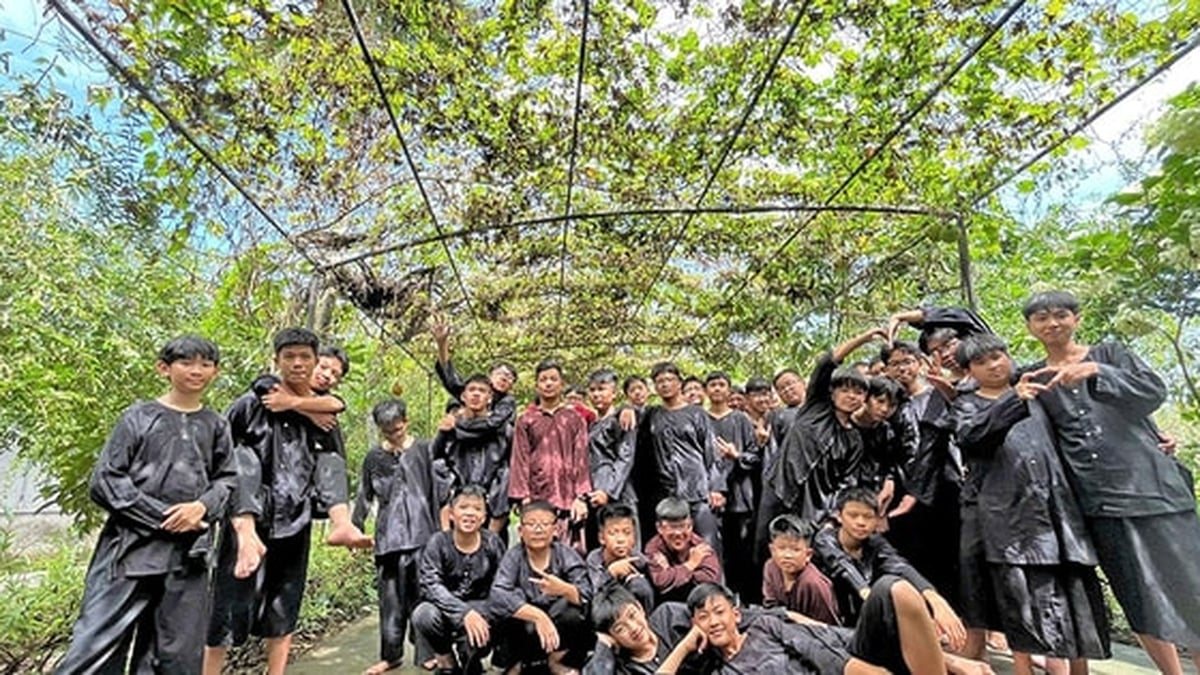Attending were leaders of the Department of Culture and Sports ; representatives of leaders of districts with participating students; lecturers and students attending the training course.
After 3 days of studying and working with a spirit of urgency and seriousness, the training class on folk performing arts of the Mong ethnic group in Ky Son, Tuong Duong and Que Phong districts has completed the entire program and tasks set out. Although the time was limited, the class solved many important contents, opening up many new and interesting issues.
 |
Performance by actors from the Provincial Traditional Arts Center. Photo: Cong Khang |
The Mong ethnic folk performing arts training class is not only an environment for students to meet, exchange and share experiences, and strengthen community solidarity, but also equips them with more knowledge and skills about Mong ethnic folk performing arts.
The lecturers are people with extensive knowledge of ethnic minority folk culture, enthusiastic, dedicated and have rich, flexible teaching methods, focusing on the main points. The lesson content is true to reality, focusing on the folk music culture of the Mong ethnic group.
 |
The Organizing Committee awarded Certificates of Completion of the Training Program to trainees in Tuong Duong district. Photo: Cong Khang |
Students participated in the class with a serious attitude, many students spoke very enthusiastically, frankly giving opinions on unclear issues, with many new and practical counter-arguments and suggestions. That was the opinion of Mr. Xong Ba Lau (cadre of Nam Can commune, Ky Son district) on the issue of paying attention to recognizing more artisans so that they have the motivation to pass on their heritage; at the same time, proposing to recognize the Mong flute as an intangible cultural heritage at the provincial level, or even larger, at the national level.
Or as the opinion of artisan Va Ba Dua (Nhon Mai commune, Tuong Duong) suggested that provincial departments open more classes to teach Mong panpipes and invest in building a set of supporting documents for Mong panpipe classes for young artisans, because teaching Mong panpipes is very difficult, complicated, takes a lot of time and currently few people study.
 |
Students take souvenir photos with the Organizing Committee. Photo: Cong Khang |
At the end of the training course, the trainees will return to their localities, together preserving and transmitting the Mong ethnic folk performing arts to preserve and promote them in contemporary life, forever a precious cultural heritage, becoming the pride of the nation./.
Source





























































































![[Infographic] In 2025, 47 products will achieve national OCOP](https://vphoto.vietnam.vn/thumb/402x226/vietnam/resource/IMAGE/2025/7/16/5d672398b0744db3ab920e05db8e5b7d)





Comment (0)